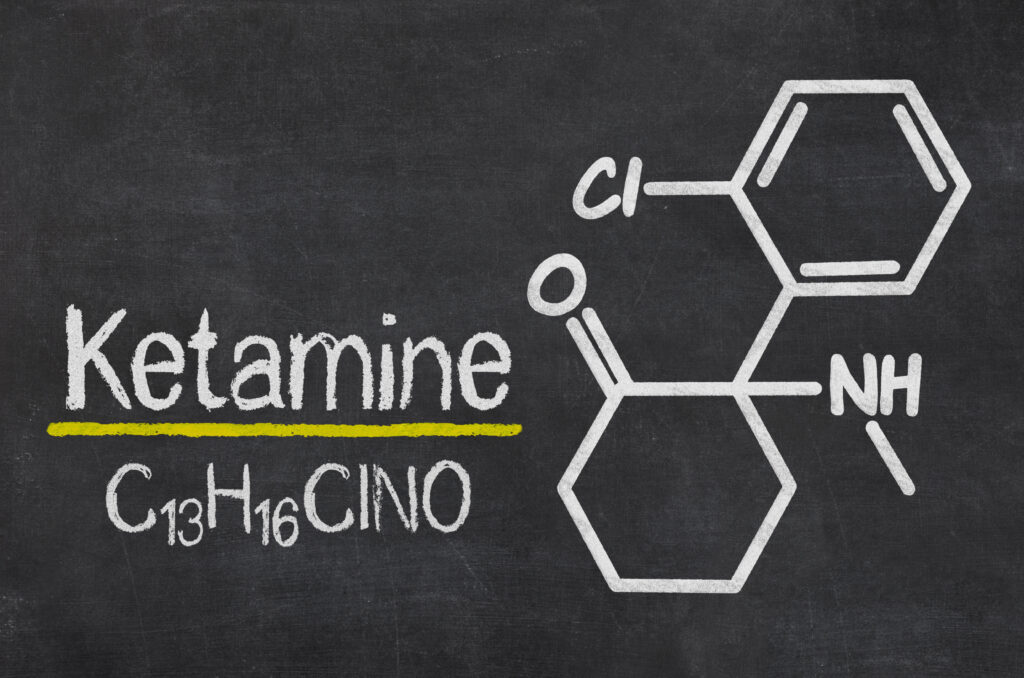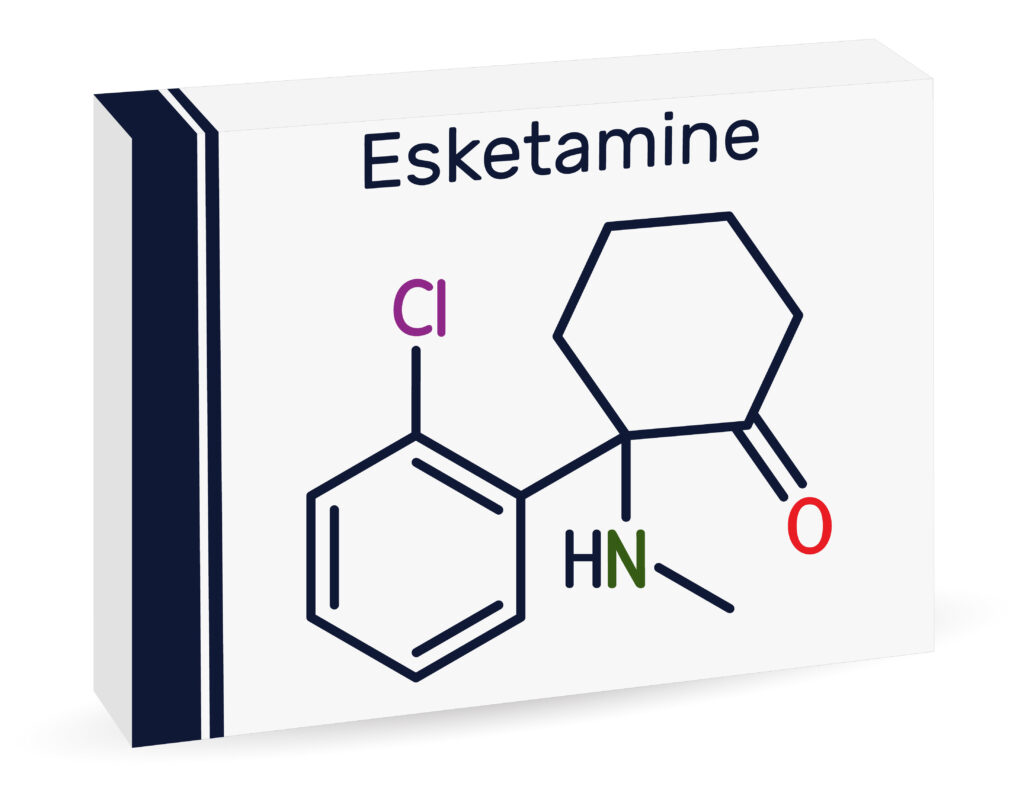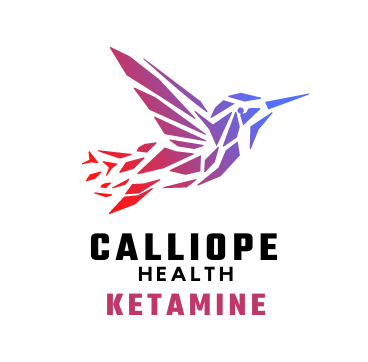How is ketamine used in psychiatric treatment?
Ketamine is no longer being used just as a “last resort” for so-called treatment-resistant depression. While ketamine is still certainly an excellent choice for breaking the discouraging cycle of years of trial-and-error with traditional medications like SSRIs or SNRIs, many people with less severe symptoms are benefitting from treatment with ketamine.
At Calliope Health Ketamine, we use ketamine in conjunction with IFS therapy—which helps you explore your inner life in depth and learn to orchestrate parts of you instead of being yanked around by emotional reactions. You may be a candidate for using ketamine as a powerful tool to accelerate results from treatment of anxiety, compulsions, mood disorders.



How is ketamine administered?
Intravenous infusion (IV) is currently the most common method of ketamine treatment. At Calliope Health Ketamine, our goal is to help you use ketamine as a tool for psychological development and/or spiritual growth. We believe that using ketamine in conjunction with psychotherapy can help you get deeper and longer lasting behavioral results. Research has consistently shown that combining psychiatric medical treatment with talk therapy is the most effective way to treat depression or anxiety. Although IV infusions have a place in psychiatric care, therapy is not usually recommended immediately after an IV infusion, but can be done the day after. At Calliope, we offer psychotherapy most typically after a person is given in intramuscular (IM) injection or ingests ketamine orally.
Why are so many ketamine clinics treating depression or other mental health conditions without psychiatric training?
Historically, the physicians who are most familiar with administering ketamine are anesthesiologists or emergency room physicians. It is these physicians who operate the majority of ketamine treatment centers in the U.S. Some doctors believe that ketamine is so good at reversing depression and reducing anxiety in the days after treatment, that little or no interpersonal contact with a ketamine patient is required. Calliope Health Ketamine was founded to because we believe that psychological, emotional and social integration are key to permanently shifting negative patterns that contributed to depression or PTSD in the first place. Nonetheless, there are two reasons why ketamine is still commonly offered without psychological support concurrently.
First is that ketamine is such a well-tolerated and safe medicine. Other than screening for hypertension or untreated mania or psychosis, physicians cite the relatively low risk of offering ketamine treatment. A classic example of the safety of ketamine is the fact that ambulances and emergency rooms routinely give ketamine as a sedative or for pain management to children, adults, and elderly even in circumstances where there is no time or possibility for gaining health data about the patient.
The second reason so many ketamine clinics are operated by non-psychiatric clinicians is adjacent to the first item, but it’s important to illuminate the distinction. Persons who are currently taking psychiatric medicine do not have to stop taking them prior to receiving ketamine treatment. Contrast this with the soon-to-be-FDA-approved psychedelic medicines MDMA and psilocybin. When MDMA and psilocybin are approved for prescription and administration in out-patient clinics like Calliope Health, we expect that patients must first stop taking SSRIs or SNRIs (anti-depressants like Paxil, Lexapro, Wellbutrin, or Zoloft).
Why is esketamine/Spravato rarely used in psychiatry practice?
There are two main reasons why clinicians tend to prefer racemic ketamine over esketamine. One is cost: Esketamine/Spravato is ridiculously expensive. ($850 versus $2 for the generic medication). Second is lack of flexibility:The pharmaceutical company controls the route, the dose, and the frequency of esketamine treatment. This takes away the provider’s ability to utilize their clinical judgment, or to customize the treatment for the individual patient’s needs.
Finally, Spravato is sub-psychedelic by design. In other words, Spravato is not fully dissociative, and would not be useful to achieve the levels of non-ordinary states of consciousness (the “window of plasticity”) that we believe to be highly useful in ketamine assisted psychotherapy (KAP).

How frequently does ketamine need to be taken?
Some people experience a rapid and immediate relief of depressive symptoms within the first hour after ketamine treatment. This “window of remission” may only last one day. For others it may last one week or much longer. There is a direct correlation between how severe the symptoms of depression are and how many ketamine treatments are needed to keep the window of remission open for longer and longer periods. There is no standard protocol for how many ketamine doses someone should receive. This is because ketamine at most clinics (including Calliope) is being used off-label. Off-label prescription of medication by doctors is a common practice since many medications are approved for the treatment of one disorder but may in fact also treat many other conditions. The FDA gives physicians wide discretion for how to prescribe medications for uses other than for the approved condition.
It’s important to know that some patients must use ketamine several times per week, sometimes indefinitely, in order to obtain full symptom remission. While frequently or long-term use of ketamine to manage symptoms may not be affordable for everyone, we believe that linking psychotherapy with a defined number of ketamine treatments can accelerate and boost a person’s standard treatment regimen.
For severe depression, a common practice at infusion clinics is to promote an infusion frequency of twice weekly for 7-10 weeks. At some point during this intensive “onboarding” of ketamine, the schedule is reduced to once per week, then once every other week, then perhaps once per month. Each time the frequency of ketamine is reduced, the physician looks for reports of any sudden return of severe depression. If this occurs, a ketamine treatment is recommended as soon as possible.
Keep in mind that this intensive and aggressive approach to psychiatric care is sometimes called “interventional psychiatry.” An interventional psychiatrist seeks to rapidly leverage new or promising treatments due to avoid the “runaway train” of deteriorating emotional and psychological conditions.
At Calliope, your psychiatrist and psychotherapist will work with you to help determine how you may best take advantage of the potential of ketamine treatment.
